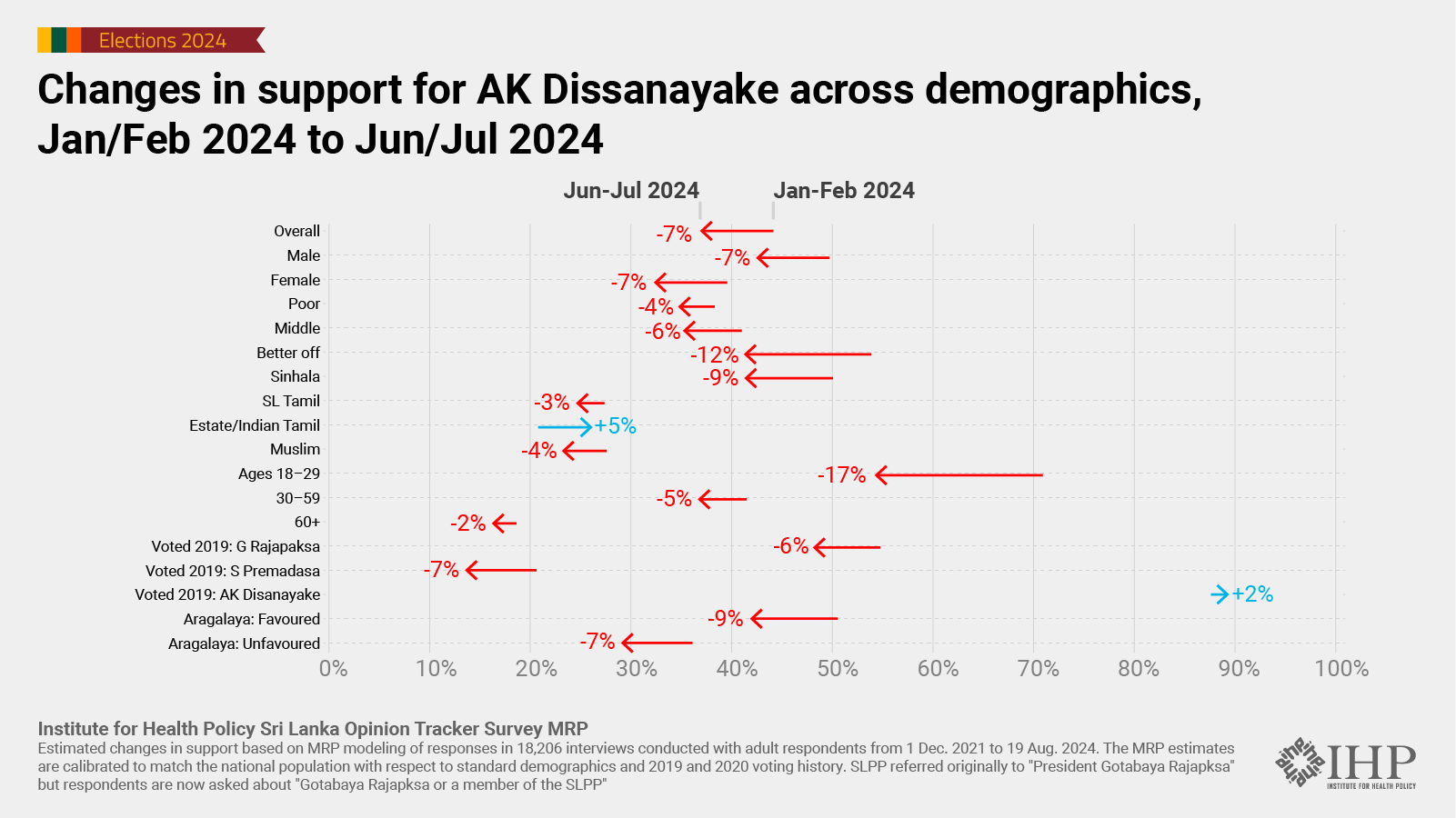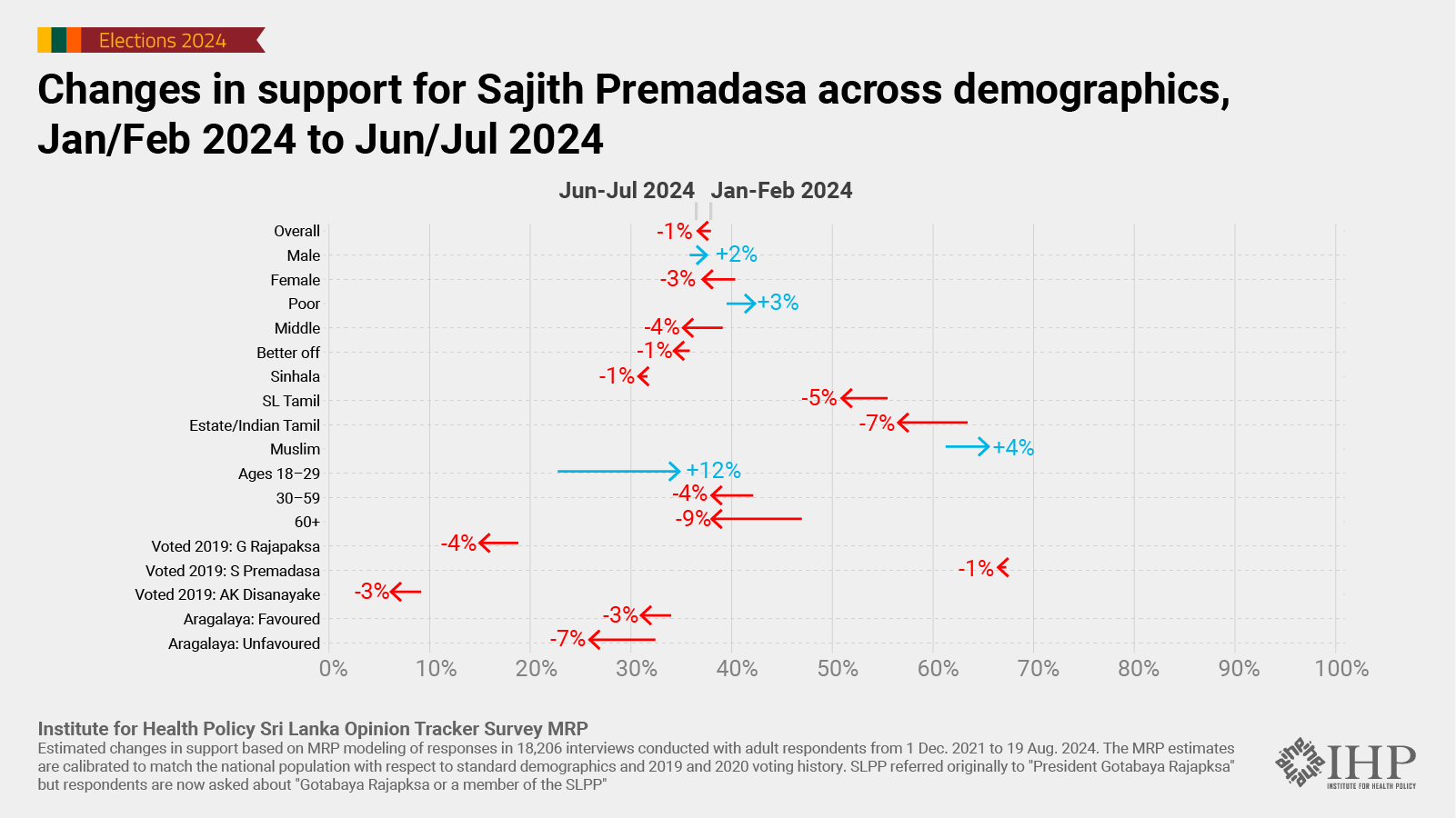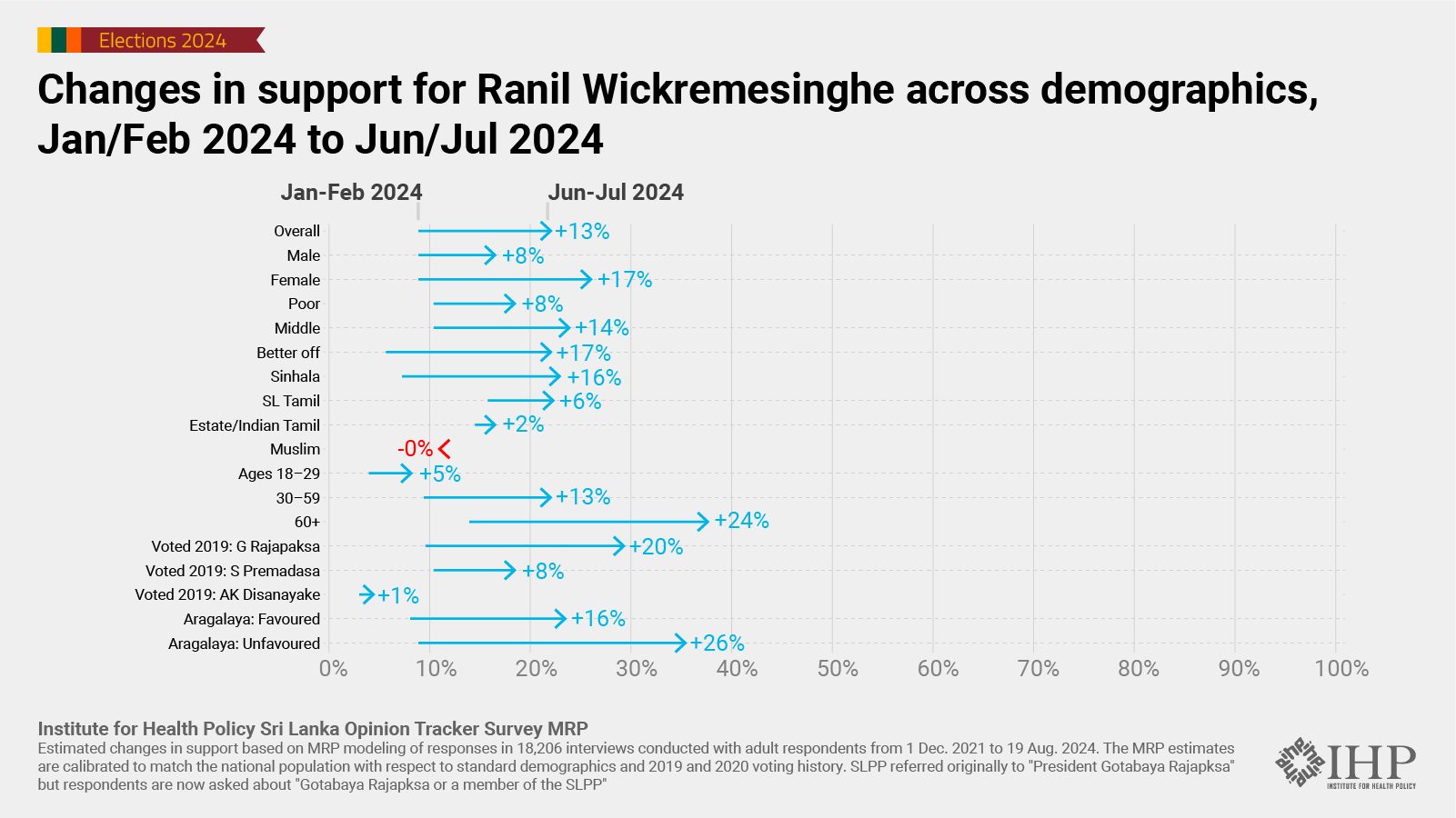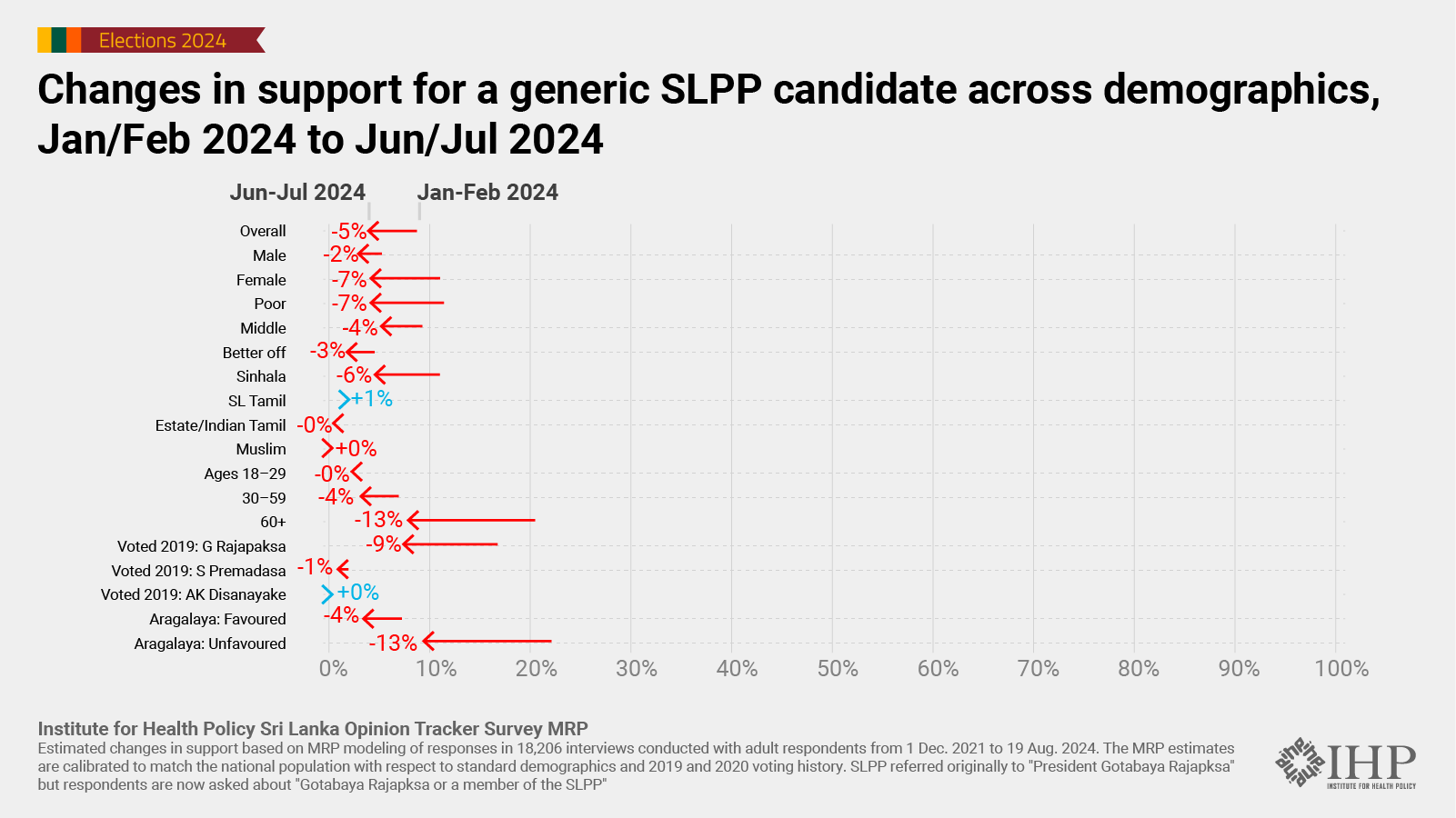Changes in Support for the Leading Presidential Candidates
Photo courtesy of Aithiya
In first half of 2024, the most notable changes in voting intent were the rise in support for President Ranil Wickremesinghe as a potential presidential candidate at the apparent expense of support for likely candidates from the NPP, SJB and SLPP.
In Institute for Health Policy’s (IHP) Multilevel Regression and Post-Stratification (MRP) model projections, support for NPP leader Anura Dissanayake, SJB leader Sajith Premadasa and a generic SLPP candidate declined by 7%, 1% and 5% respectively from the first two months of the year to June/July 2024. The main beneficiary was President Wickremesinghe, whose support more than doubled, increasing 13% to 22% during the same period, although this still left him trailing in third place.
To shed some light on what was driving these changes, this analysis delves into the August 2024 MRP model estimates of voting intent to look at how support for the currently leading candidates changed in different demographic groups.
NPP leader Anura Dissanayake registered losses in support across most demographics but the biggest losses were in his core base of the better off, Sinhala and youth (18-29 years) voters, where support fell 12, 9 and 17 points respectively. Support among voters with a favourable view of the Aragalaya fell 9% – a bigger fall than Sajith Premadasa experienced, although he retained a strong lead over his opponents in these voters. He also lost support amongst voters who voted for Gotabaya Rajapaksa or Sajith Premadasa in 2019 although the MRP estimates suggest he managed to consolidate his 2019 presidential election voters.
Sajith Premadasa also lost support across most demographics, with his biggest losses in older adults (60+ years) where his support fell 9 points. However, he did consolidate support amongst poor Sri Lankans (+3) and Muslims (+4), both groups where he led other likely candidates.
The shifts away from both Anura Dissanayake and Sajith Premadasa seem to have been largely to the gain of President Wickremesinghe. His support rose across all demographics except in Muslims. This included a larger gain in women (+17% vs. +8% in men), improving his better performance in women. Shifts in his favour were biggest in better off (+17), Sinhala (+16), older (+24) and former Gotabaya Rajapaksa (+20) voters. But notably the biggest shifts in his favour were in anti-Aragalaya voters, where he gained 26 points to build a lead over all other likely candidates. To a considerable extent, President Wickremesinghe has been a major beneficiary of the core pro-government/Rajapakse/SLPP vote, which in the first half of the year largely collapsed across all demographics.
IHP’s SLOTS survey conducts telephone interviews with a hybrid sample of respondents, consisting of (i) adults (18+ years) reached by random digit dialling of mobile numbers (RDD sample) and (ii) adults previously recruited by IHP as a nationally representative sample (cohort sample). The cohort sample is well balanced by age, gender, ethnicity and socioeconomic status, and was originally recruited in 2019 as a stratified probability sample drawn from 300 Grama Niladhari Divisions in all districts of Sri Lanka. Over time, the composition of the SLOTS sample has shifted to be predominantly RDD respondents, with cohort respondents tracked primarily to calibrate the overall sample.
The overall SLOTS samples cover all districts, ages, ethnicities, religions, sectors and levels of socioeconomic status. All published SLOTS survey estimates are weighted to match the national population for age, gender, ethnicity, province, sector, education, and socioeconomic status. For analyses of voting intent, estimates are additionally matched to voting history (presidential eElection 2019, general election 2020).
When asking for presidential election voting intent during the time period covered by this analysis, SLOTS interviews asked respondents to choose from a short list of Ranil Wickremesinghe, Sajith Premadasa, Anura Dissanayake and a generic SLPP candidate.
The analysis reported here are based on modelling of responses from 18,206 interviews conducted from December 1, 2021 to August 19, 2024 including 1,077 interviews conducted in January/February 2024 and 1,146 interviews conducted in June/July 2024. The margins of error are assessed as 2-4% for Ranil Wickremesinghe, Sajith Premadasa and Anura Dissanayake.




